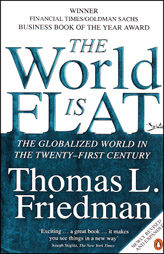An Uncertain Glory: India and its Contradictions
After two centuries of imperialism and colonial subjugation India attained its Independence in 1947. And in its attempt to earn the freedom of its people, the founding fathers adopted a firm and fair system of democracy to usher in a new chapter in the history of India. The economists place their argument in the period that lay hereafter and the basic flaws in the Indian system. They stress on the attention needed for the marginalized if there is a view to sustain growth and lead the development trajectory into a more dominant position.
An Uncertain Glory: India And Its Contradictions explicates the progress of the nation as it overcame the economic lag to earning a growth rate that soon made it the second fastest growing economy in the world. For Dreze and Sen the focus however lies elsewhere and it is in determining the essential needs of the people and bridging the gap of opportunities that they believe there is a chance for India to cash in its true realization of freedom. They discuss the deep inequalities that are entrenched in the Indian system and how the resulting failure to develop human capabilities is stunting its growth.
In another vein the economists believe the importance of sustainable growth that is also environmentally conscious and in that respect they lay out the failures of the economy to develop their backbone of infrastructure adequately. The incompetent tackling of public resources that has accrued to India’s phenomenal growth in developing social services and infrastructure is a major concern for the economists.
They believe that the quality of life in India is the major concern and therefore the needs and social deprivations of the majority of the people who are among the lower rungs are of priority basis and need to be addressed. The authors lay out a premise for a stronger democratic ethic that concentrates on these neglected corners of Indian policy in this enlightening treatise.
An Uncertain Glory: India And Its Contradictions explicates the progress of the nation as it overcame the economic lag to earning a growth rate that soon made it the second fastest growing economy in the world. For Dreze and Sen the focus however lies elsewhere and it is in determining the essential needs of the people and bridging the gap of opportunities that they believe there is a chance for India to cash in its true realization of freedom. They discuss the deep inequalities that are entrenched in the Indian system and how the resulting failure to develop human capabilities is stunting its growth.
In another vein the economists believe the importance of sustainable growth that is also environmentally conscious and in that respect they lay out the failures of the economy to develop their backbone of infrastructure adequately. The incompetent tackling of public resources that has accrued to India’s phenomenal growth in developing social services and infrastructure is a major concern for the economists.
They believe that the quality of life in India is the major concern and therefore the needs and social deprivations of the majority of the people who are among the lower rungs are of priority basis and need to be addressed. The authors lay out a premise for a stronger democratic ethic that concentrates on these neglected corners of Indian policy in this enlightening treatise.
Top rated books in this category





























